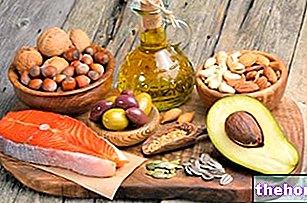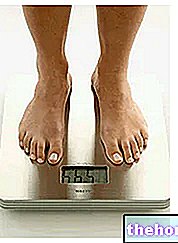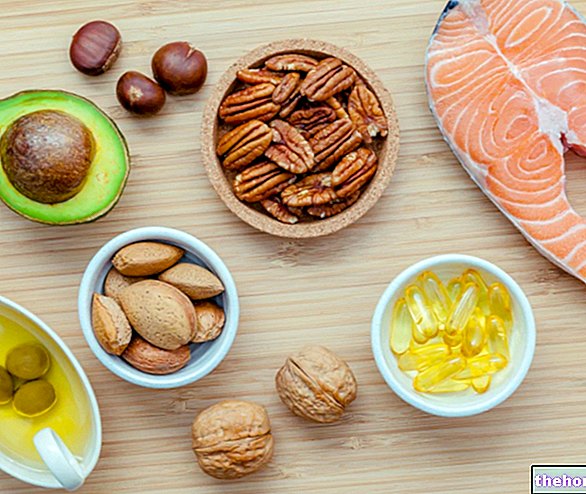Generality
Coconut water is the juice found in the internal cavity (endosperm) of healthy, undamaged green coconuts.
Coconuts reach their maximum water content (up to one liter) around 7 months of life.

Coconut palms thrive in tropical environments and coastal strips.
A coconut tree is capable of producing several hundred nuts each season. Naturally, the taste of the pulp and the water they contain show considerable variations according to the cultivar, the saline content of the soil, the distance from the sea shore, the climate, etc.

Nutritional values (per 100 g of edible portion)
Coconut water is one of the most refreshing drinks known in nature (therefore not produced by man).
It is widely consumed throughout the tropical belt, thanks to its thirst-quenching properties given to it by the high potassium content.
Hints of Chemical Composition
100ml of coconut water provides 15-20kcal / 100g and the dry residue barely reaches 10% of the RDA (average value).
In particular - in spite of what was declared by the companies that market coconut water in a jar - the contribution of minerals (sodium, potassium, magnesium, calcium) and vitamins (group B and C), in a 100ml portion , is not particularly significant.
Coconut water is clear and sweet, sterile and composed of some chemicals, such as: sugars, vitamins, minerals, electrolytes, enzymes, amino acids, cytokines and phyto-hormones, all present in rather low concentrations.
For more information on the nutritional characteristics of coconut water, read the article: Coconut Water and Nutrition.
Compared to green ones, rich in liquid, mature coconuts contain much less water and a thicker endosperm; the latter is the edible portion of the fruit, rich in lipids.
Hypothetical Health Benefits
Coconut water is a very refreshing and thirst-quenching drink.
The liquid contains simple sugars and minerals, useful to compensate for a "possible condition of dehydration of the human body.
Let's now analyze in more detail the various health properties (hypothetical or overt) of coconut water; in particular, let's focus on its rehydration capacity.
- In many tropical regions, coconut water is administered to patients with dysentery as a substitute for rehydrating solutions. In fact, the osmolarity of coconut water is only slightly higher than that recommended by the "WHO Recommended ORS" for oral rehydration therapy (Oral Rehydration Therapy); this characteristic is conferred (probably) by the not excessive presence of various biological constituents, such as: amino acids, enzymes, minerals and fatty acids. Unlike WHO-ORS, coconut water has a modest content of sodium and chlorides, but is richer in sugars and amino acids.
- Coconut water contains a good amount of potassium, about 250mg / 100ml (compared to 105mg / ml of sodium). This mineral, which is among the electrolytes most dispersed in the stool in case of dysentery - but also in sweat in case of intense sport or thermoregulation - it can be replenished by regularly (but not exclusively) taking coconut water instead of ordinary water. In this sense, even the modest concentration of other minerals (calcium, iron, manganese, magnesium, zinc) and certain B vitamins (riboflavin, niacin, thiamine, pyridoxine and folate), contribute to making coconut water a hypothetically useful product for rehydration and reconstitution of weak subjects.
- "Fresh coconut water (not canned water) also contains a small amount of vitamin C (ascorbic acid), or about 2.4mg / 100ml (4% of the RDA). As is well known, vitamin C is a water-soluble antioxidant, which however can be found in higher quantities in many other foods.
- Some argue that cytokines (kinetin, trans-zeatin, etc.), present in coconut water, can exert an anti-aging, anti-carcinogenic and anti-thrombotic effect. However, if the functions of certain cytokines are well known, the effect of coconut water has not been widely demonstrated.
- Coconut water is composed of many bioactive and natural enzymes, such as acid phosphatase, catalase, dehydrogenase, diastase, peroxidase, RNA-polymerase etc. These could be a valuable aid in digestion.
Medicinal Uses
Coconut water was, albeit rarely, used as a fluid intended for intravenous rehydration when medical hydrosaline mixtures were not available.
The composition of coconut water is vaguely similar to that of human blood plasma. During World War II, when medical supplies were extremely limited, many wounded of Japanese and English descent were injected with coconut water; the number of survivors is unknown.
Obviously, this rehydration technique was used only for short-term emergency situations, in remote locations where plasma is almost never available.
Although today, from a medical point of view, it is absolutely inadvisable to replace saline solutions with coconut water, during the “Khmer Rouge” regime in Cambodia (1975-1979), it was a common practice. On the other hand, the Documentation Center of Cambodia calls consent to nurses trained in the administration of green coconut water a crime against "humanity".
In folk medicine, coconut water was used as a treatment for diarrhea.
Is Too Much Coconut Water Bad?
Some anecdotal sources describe the "archaic use of coconut water for the senicide of the elderly in India, a procedure known as" thalaikoothal ". This custom provided for the administration of an excessive quantity of coconut water to the victims who, after the rise of the fever, came to death.
The causes of this reaction are not well established. A fairly reliable hypothesis is that of excess potassium in the blood (hyperkalaemia) which, inducing acute renal failure, causes cardiac arrhythmia, loss of consciousness and finally death. similar, as the kidneys are generally capable of filtering out high concentrations of potassium. For already compromised kidneys, however, it is possible that the reaction is different.
The only known case of hyperkalemia and loss of consciousness which occurred following the consumption of several liters of coconut water, highlighted the association of this last food with a sports food supplement.
Coconut water is a drink universally recognized as "safe". At normal portions (250-350ml) no adverse reactions of any kind are known, therefore there is no negative notification. Being sterile (if extracted from a nut healthy coconut), is also considered safe in pregnancy, lactation, for children (after weaning) and in pathological conditions with medical consent.
















.jpg)











